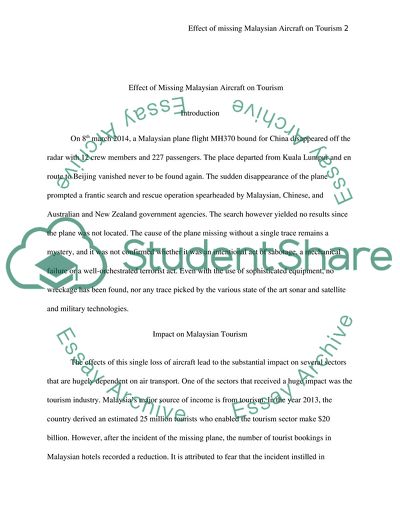Cite this document
(Effect of Missing Malaysian Aircraft on Tourism Essay, n.d.)
Effect of Missing Malaysian Aircraft on Tourism Essay. https://studentshare.org/tourism/1850456-crisis-or-disaster-that-has-happened-in-either-the-tourism-or-the-hospitality-or-the-events-industry
Effect of Missing Malaysian Aircraft on Tourism Essay. https://studentshare.org/tourism/1850456-crisis-or-disaster-that-has-happened-in-either-the-tourism-or-the-hospitality-or-the-events-industry
(Effect of Missing Malaysian Aircraft on Tourism Essay)
Effect of Missing Malaysian Aircraft on Tourism Essay. https://studentshare.org/tourism/1850456-crisis-or-disaster-that-has-happened-in-either-the-tourism-or-the-hospitality-or-the-events-industry.
Effect of Missing Malaysian Aircraft on Tourism Essay. https://studentshare.org/tourism/1850456-crisis-or-disaster-that-has-happened-in-either-the-tourism-or-the-hospitality-or-the-events-industry.
“Effect of Missing Malaysian Aircraft on Tourism Essay”. https://studentshare.org/tourism/1850456-crisis-or-disaster-that-has-happened-in-either-the-tourism-or-the-hospitality-or-the-events-industry.


